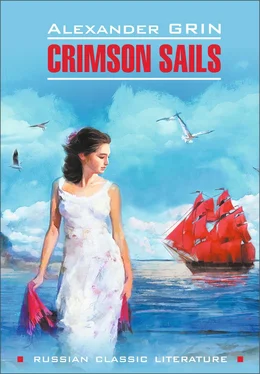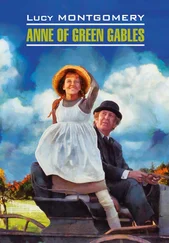In this world, most naturally, the figure of the captain towered above all else. He was the fate, the soul and the brain of the ship. His character determined the work and the leisure of the crew. He selected his crew himself and it met his inclinations in many ways. He knew the habits and family life of each man. He possessed, in the eyes of his subordinates, magical knowledge, which enabled him to confidently plot a course from, say, Lisbon to Shanghai across the vast expanses. He repelled a storm by the counteraction of a system of complex efforts, squelching panic with curt orders; he sailed and stopped where he would; he was in command of the sailing and loading, repairs and leisure; it was difficult to imagine a greater and more sensible authority in a vital enterprise full of constant movement. This power, in its exclusiveness, and absoluteness, was equal to the power of Orpheus.
This notion of a captain, this image and this actual reality of his position occupied, by right of events of the spirit, the place of honour in Gray’s splendid imagination. No other profession save this could so successfully fuse into a single whole all the treasures of life, while preserving inviolable the most delicate design of each separate joy. Danger, risk, the forces of nature, the light of a distant land, the wondrous unknown, effervescent love, blossoming in rendezvous and parting; the fascinating turmoil of encounters, faces, events; the endless variety of life, while up above in the sky was now the Southern Cross, now the Big Dipper, and all the continents were in one’s keen eyes, though your cabin was replete with your ever-present homeland, with its books, pictures, letters and dried flowers entwined by a silken strand of hair in a suede locket on your manly chest.
In the autumn of his fifteenth year Arthur Gray ran away from home and passed through the golden gates of the sea. Soon after the schooner Anselm left Dubelt and set sail for Marseilles, with a ship’s boy aboard who had small hands and the face of a girl dressed in boy’s clothing. The ship’s boy was Gray, the owner of an elegant travelling-bag, patent leather boots as fine as kid gloves and batiste linen adorned with a crown crest.
In the course of a year, while the Anselm sailed from France to America and Spain, Gray squandered a part of his possessions on pastry-cakes, thus paying tribute to the past, and the rest, for the present and future, he lost at cards. He wanted to be a red-blooded sailor. He choked as he downed his liquor, and when bathing, his heart would falter as he dived from a height of twelve feet. He gradually lost everything except that which was most important – his strange, soaring spirit; he lost his frailty, becoming broad of bone and strong of muscle, his paleness gave way to a deep tan, he relinquished his refined carelessness of movement for the sure drive of a working hand, and there was a sparkle in his intelligent eyes as in a person’s who gazes into a fire. And his speech, having lost its uneven, haughtily shy fluidity, became brief and precise, as the thrust of a seagull at the quivering silver of a fish.
The captain of the Anselm was a kind man, but a stern seafarer who had taken the boy on out of maliciousness. He saw in Gray’s desperate desire but an eccentric whim and gloated in advance, imagining that in two months’ time Gray would say, avoiding his eyes: “Captain Hop, I’ve skinned my elbows climbing the rigging; my back and sides ache, my fingers don’t bend, my head is splitting and my legs are shaky. All these wet ropes weighing eighty pounds to balance in my hands; all these manropes, guy ropes, windlasses, cables, topmasts and cross-trees are killing my delicate body. I want to go home to my mamma.” After listening mentally to this speech, Captain Hop would deliver, also mentally, the following speech: “You can go wherever you want to, ducky. If any tar’s got stuck on your fine feathers you can wash it off at home – with Rose-Mimosa Cologne.”
Конец ознакомительного фрагмента.
Текст предоставлен ООО «ЛитРес».
Прочитайте эту книгу целиком, на ЛитРес.
Безопасно оплатить книгу можно банковской картой Visa, MasterCard, Maestro, со счета мобильного телефона, с платежного терминала, в салоне МТС или Связной, через PayPal, WebMoney, Яндекс.Деньги, QIWI Кошелек, бонусными картами или другим удобным Вам способом.












